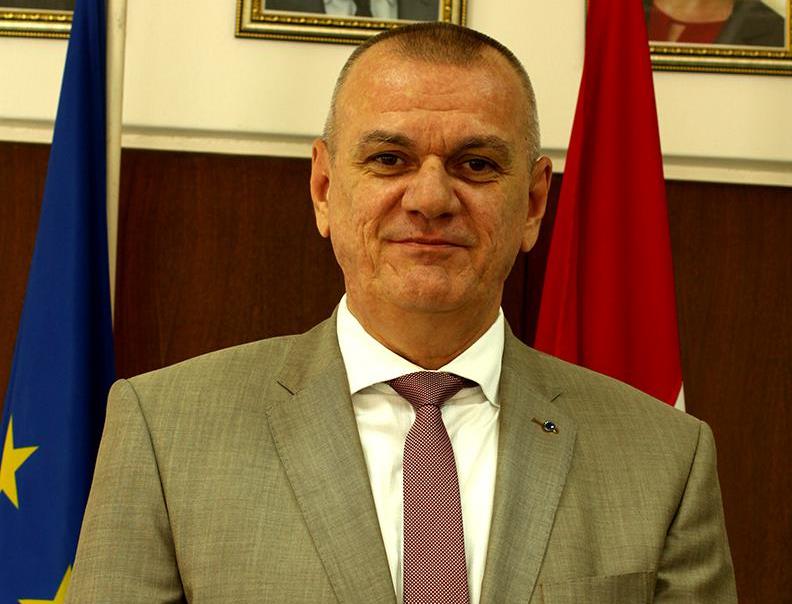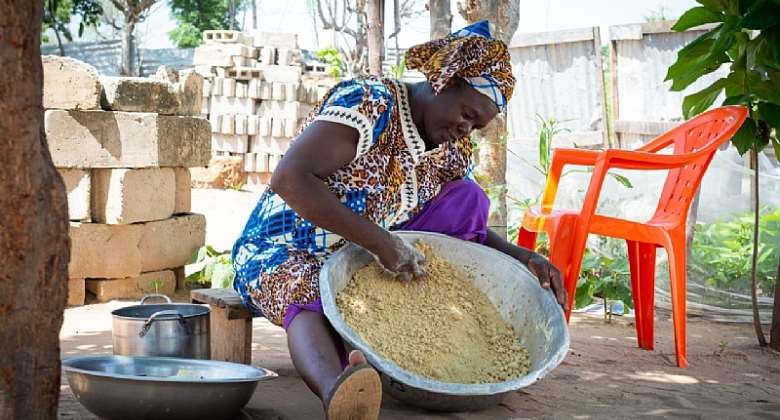By: Momodou Justice Darboe
The President of the Gambia Chamber of Commerce and Industry (GCCI), Edrisa Mass Jobe (EMJ), has emphasized that the GCCI hopes trade war and tariff measures should not start between The Gambia and Senegal.
Of late, Banjul and Dakar have been involved in shuttle diplomacy as Gambian officials have been flying between the two cities to discuss ways of removing some of the seeming trade barriers between Senegal and The Gambia such as the cement tariff increase. There are also impending missions between presidents Faye and Barrow, regarding trade.
The Gambia government in an unpopular move monumentally increased the tariff on bagged cement from D30 per bag to D180 per bag, leading to cement shortages and price hikes in many parts of the country.
As a result of the new tariff, cement trucks have been left stranded at the Gambia/Senegal border for weeks as importers said the tariff could bankrupt them and cause huge job losses.
The GCCI President advised that the negotiations between the stakeholders, regarding the new cement tariff should continuebecause, according to him, the move to increase it was hurried.
“The decisions [cement tariff increase] are too hasty and the increase of tariff six-fold is not very progressive. It is going to get a lot of people out of work,” he pointed out.
“And the other thing is market stability. If the cement market is not stable, it is going to affect remittances. If it affects remittances, it’s going to destroy the value of the dalasi and if it destroys the value of the dalasi, everything else is going to be high,” he added.
The GCCI President stressed that neither the cement importers nor the so-called producers should be allowed to form a cartel or exercise a monopoly in the cement business.
He suggested that the government take the lead in any cement tariff talks.
“We think the government should take the lead. And, all of us should sit together with a view to ensuring supply stability and how do we ensure the consumers, especially the hardworking ones,are not paying more,” he stated.
President Jobe highlighted that the Gambia’s cement industry has been growing for the past decade and that it must be allowed to thrive.
“This is one industry that has been growing for the last 10 years. You don’t put a halt to that industry,” he underscored.
He also underlined that even though there were efforts to make the country’s cement industry robust and resilient, the GCCI wants every industry player to be treated equally.
“We want equity. Every Gambian, irrespective of background, should be able to join the industry and compete, grow, and become the biggest,” stated Chairman Jobe.
Meanwhile, he pointed out that the GCCI believes more and more that developing a regional value chain is important. He continued: “We have seen when the Ukraine war started, we could not even get wheat in West Africa until Macky Sall had to go [ to grain export negotiation talks]. So, we are saying that Senegal is having a limestone. It’s real. When they produce the cement, they dig the ground and 70% of all that they need is already in their ground. Unfortunately, we don’t have it but I think we should approach our relationship with Senegal in a more responsive and friendly manner because we are intertwined.
“It’s God that has made us the same. If you go to Senegal, a Sonko can be a Gambian, a Faye can be …They [Gambians and Senegalese people]are one people that are intertwined and we believe that we should work with Senegal on tariff measures. We should have what, I call,Common External Tariffs (CET). That is if we are to import, say cement, Senegal and Gambia must have the same tax on all cement coming out of the zone. If we are to talk about poultry because this region can produce poultry, we have to say if Senegal is taxing poultry, we should tax the same so that we stop the external and develop the internal. But then we should not fight between Gambia and Senegal.”
The GCCI President advised that The Gambia should not put trade barriers for goods coming from Senegal.
“Even if they don’t allow us, let us fight for them to allow us but we should not favour other goods over Senegalese goods because of our integration. The more we work together, the better not only from an economic point of view but the security point of view that our economies must intertwine because we cannot stop goods from circulating between Senegal and The Gambia even if the governments do notlegislate. So, we are saying what cannot be stopped must be encouraged,” he advised.





